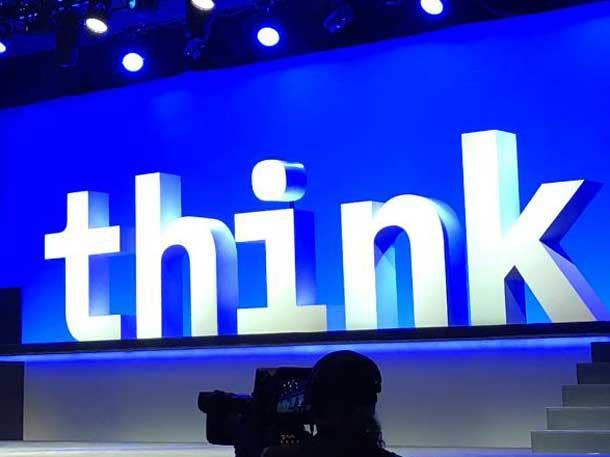IBM Channel Chief Assesses Partner Program Overhaul At PartnerWorld 2019

Almost two years into a major channel overhaul, IBM channel leaders told partners Monday they'll continue tweaking the program to build off their successes.
John Teltsch, Big Blue's channel chief, told some 8,000 IBM Business Partners who came to San Francisco for PartnerWorld, the kickoff event to the company's larger Think conference, that priorities will remain consistent in 2019: improving the partner experience, making it easier to engage with IBM, and helping partners improve relationships with their customers.
"Minimal changes" will continue to achieve the desired effects of the revamp Teltsch launched after taking the reins of the program in June of 2017, he said in a keynote.
[Related: 5 Ways IBM Is Looking To Empower Partners]
"Many of you know we weren't doing so well 24 months ago," he said. "You shared your recommendation on what we needed to do."
Since then, IBM has seen record channel growth, differentiation among partners, and greater partner satisfaction, he said. But there's more to do in 2019.
IBM will continue its push to simplify its PartnerWorld program by breaking down partner silos and encouraging more specializations.
Those channel initiatives will come as partners capitalize off the depth and breadth the company delivers around hybrid and multi-cloud, artificial intelligence, security and advanced analytics—"all essential ingredients" in the current IT marketplace, Teltsch said.
Those technologies are synergistic, he said, as hybrid and multi-cloud environments are the foundation of adopting AI.
Among the new initiatives that are proving popular is a deal registration program launched last year for Software-as-a-Service, and another launched three weeks ago for software license resellers, he said.
Despite some initial hiccups that required a modification, a net promoter score system has also proved valuable to IBM's channel, Teltsch said.
Adding competencies has been an important element of driving specialization and greater differentiation in the channel—one of the key elements CEO Ginny Rometty wants to see achieved.
Last year, IBM implemented many changes on the enablement front that have also pleased partners, he said.
Big Blue gave access to its Skills Gateway platform for partners to access different technical and sales learning assets; for the first time gave partners access to its internal intelligence data on its own products, and those of competitors; and launched an easy-to-use co-marketing program.
To further ease engagement, the partner contract was pared down from 18 pages to 4, Teltsch said.
"We're focused on ensuring stability in your sales motion and reducing the friction that your teams experience," he said.
Another challenge looming in the distance is the merger with another massive channel—that of Red Hat.
Steve Robinson, IBM's general manager of the Red Hat Synergy Team, took the stage in the PartnerWorld keynote to tell partners that in the fourth quarter and so far in the first, "We've been flat out working on this deal."
He added, "If you've ever tried to close a deal of this size, please make sure governments stay open, and that Brexit doesn't try to leave the EU."
With Red Hat, IBM will focus on three "core open standards"—Linux, containers and Kubernetes.
At a fireside chat later in the day joined by leaders from Converge Technology Solutions, IBM's third-largest partner, Teltsch said in October IBM quietly implemented another change—one in terminology.
Instead of referring to its channel as the IBM Global Business Organization, IBM internally began using the moniker IBM Partner Ecosystem, which reflected that "we have to continue to build and work on this federated ecosystem inside the company," Teltsch said.
The subtle change was in response to a marketplace that has changed dramatically, Teltsch said, "much faster than I had thought a year and a half ago, naively."
Teltsch also revealed that he removed 85 percent of the people who directly reported to him in the last 12 months. "Inside IBM," he said, "we had too many people in the channel too long."
Over the same rough period, IBM added some 13,000 new partners—an annual record. Many of them, he said, were not traditional resellers, but instead focused on services, IP, embed, or industry-based solutions.
There's been a lot of trial in error in the channel revamp, he said, but it's paying off.
"I didn’t' realize how complex we were until I took this role," he said.
"We're on the right path," Teltsch said. "We made some changes that weren't necessarily the right changes. I'm going to change those, we're going to pivot."
Those changes are paying off for partners like Toronto-headquartered Converge, which has now made eight acquisitions of regional resellers and recently went public.
Greg Berard, the company's president and previous founder of Lighthouse, built out an IBM services and software division for the traditional hardware reseller. Last year, that new division generated more revenue than the legacy business.
"Every single one of our clients is having a cloud conversation," Berard said, "Though they're not all necessarily cloud first" though, as some are still trying to compare the total cost of ownership.
Converge CEO Shaun Maine, who will continue targeting new acquisitions in a bid to become IBM's largest partner, said before he partnered with IBM, he thought of the company as a closed ecosystem. But since becoming an IBM solution provider and rapidly scaling that business, he's most impressed by "the channel and team and how open they are to other technologies."
Maine sees customers "looking at how to take specific applications and move to the cloud and figure out what's the right platform."
The Red Hat acquisition will provide the platform to really drive that multi-cloud conversation, he said.